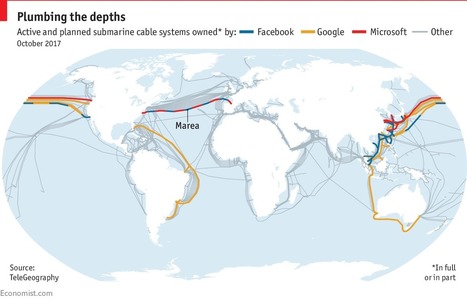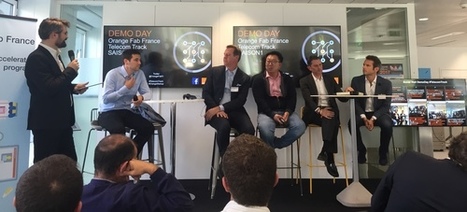Orange and four venture capitalist partners have promised to invest up to €100 million ($113 million) in telecom infrastructure startups over the next three to four years.
The funding will support startups challenging equipment incumbents like Ericsson AB (Nasdaq: ERIC), Huawei Technologies Co. Ltd. and Nokia Corp. (NYSE: NOK) as telcos embrace disruptive network technologies based on software, virtualization and open source code.
The news is the latest sign of Orange's desire to play a more influential role in the development of network technologies and reflects growing frustration with the traditional vendors.
It came as the French service provider said it would begin nurturing network startups for the first time in partnership with social media giant Facebook, which has also become more active in the networks sector over the past year.
The two companies already collaborate through the Telecom Infra Project, a Facebook-led initiative that was launched in early 2016 with a goal of more rapidly commercializing low-cost and innovative network technologies. (See Facebook: TIP Will Open Telecom Hardware.)
Four startups, chosen from a pool of 22 applicants, will receive support from Orange(NYSE: FTE) and Facebook and be invited to a TIP summit in California in November, where they will be able to meet operator members.
TIP now counts about 450 members including "all of the most important mobile operators" in the world, claimed Steve Jarrett, Facebook's head of infrastructure partnerships for Europe and the Middle East.
The winning startups are
- Amarisoft, a developer of virtual radio access network technology,
- Athonet, which specializes in mobile core "softwarization,"
- Adipsys, whose systems are already helping Orange to manage WiFi hotspots, and
- Horizon Computing, which claims to have made breakthroughs on reducing the costs of running data centers.
Orange Fab, the division that looks after all startup activities for the French telco, has launched a new program called Telecom Track to look after the startups from the network and infrastructure sector.
Startups will also be eligible to receive financial support from Orange Digital Ventures, the French operator's investment fund, as well as venture capital partners Iris Capital, Innovacom, Cathay Innovation and Breega Capital, although funding for the Telecom Track players is not guaranteed.
"Those who grow fast and strike partnerships and scale internationally will get the money," said Julien-David Nitlech, a partner at Iris Capital.
While €100 million ($113 million) may seem like a relatively small amount in the context of the broader network equipment market, the sudden willingness of venture capitalists to support new infrastructure players may alarm the established vendors.
"The market has historically not had a lot of venture financing," said Jarrett. "We hope to change that."
Facebook colleague Min Jun added: "We thought the investor community would need more convincing and we have seen major traction. Investors are saying we believe in this and will commit funds."
Facebook will not make any direct equity investments but says it is "conceivable" that it could acquire startups in the accelerator program.
By helping to reduce network costs, and making it easier to deploy networks in areas that currently lack connectivity, the social networking giant hopes to get more people online and using its services, it is widely assumed.
For Orange, the ultimate goal is a complete overhaul of the way it has traditionally built networks.
"We cannot be dependent on long standardization processes anymore," said Etienne Moreau, an investment manager at Orange Digital Ventures. "If we want to have control of our technology and be a software company we need to get into new technologies like white boxes and get rid of the black boxes we have sourced from equipment vendors."
With white boxes, telcos would run network software on commercial, off-the-shelf servers, instead of relying on the "black boxes" that combine proprietary hardware and software.
Orange has previously flagged its interest in white boxes and noted the challenge they pose to equipment suppliers such as Cisco Systems Inc. (Nasdaq: CSCO), which has come under pressure to adapt its own technology and business model accordingly. (See Orange Plots Mass Network-as-a-Service Rollout and Cisco Takes Bold Software Step to Counter White Box Threat – Report.)
Bertrand Rojat, the deputy vice president of Orange's Technocentre research-and-development unit, told Light Reading that, as well as forming a "commercial relationship" with startups, Orange was eager to make their technology available to some of its telco partners.
Besides other service providers involved with TIP, that could include the members of Go Ignite.
"That is an initiative between Orange, Deutsche Telekom, Telefónica and SingTel," he said. "If we have a startup that is good for one of us then it might be good for all of us."
Such moves could help the startup technologies to gain the scale they would need to be commercially viable in wide area networks.
Much like AT&T Inc. (NYSE: T) in the US, Orange appears to be stepping into roles that vendors have traditionally performed as it tries to seize control of network development and sever the ties that have previously bound it to a small number of big players.



 Your new post is loading...
Your new post is loading...










After DataCenter infrastructure (through OCP open-source hardware), Tech companies drill down further the value chain and hit sea bottom with fiber. Software is indeed eating the world yet leads to hardware...